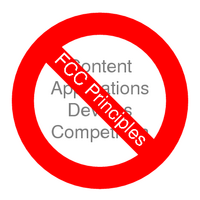Just as General Motors has in effect subsidized Big Oil by continuing to build gas-guzzlers in recent years, so has the USPS continued to subsidize Big Mail by shaping its operations to encourage what it now calls, revealingly, “standard mail”—that is, advertising junk mail. Most American citizens are blissfully unaware of the degree to which USPS subsidizes U.S. businesses by means of the fees it collects from ordinary postal customers. For example, if you wish to mail someone a large envelope weighing three ounces, you’ll pay $1.17 in postage. A business can bulk-mail a three-ounce catalog of the same size for as little as $0.14.And the USPS’s own “standard mail” is about to pop. It’s worse than you probably think. An article well worth reading.USPS management claims that “standard” mail makes lots of money, that the USPS makes a better margin delivering a “standard” mail package for $0.14 than it does a first-class one for $1.17. Why? Supposedly because of efficiencies produced by bulk-mail, machinable, zip-plus-four and zip-plus-nine standardization schemes. If you look at the revenue stream from advertising mail, it does look impressive, and it has been growing (for perverse reasons we’ll come to in a minute). But when you juxtapose next to that revenue stream the enormous transactional costs of maintaining a riotously complex rate structure to service it, you quickly reach a different conclusion: Standard mail, the costs of which are also generally tax-deductible for businesses, does not make money. It amounts to a corporate subsidy, which helps to explain why Congress, insofar as its members understand this, typically doesn’t object to the status quo. After all, these corporations have been known to contribute to electoral campaigns.
Actually, it’s worse than that. Not only are pennies shaved off the postage affixed to grandma’s letters routed directly into the pockets of direct-mail marketers, some 20 percent of direct-mail advertising volume is comprised of credit card, mortgage and other financial offers. So yes, the USPS has contributed in a subtle yet very real way to our burst economic bubble.
Tag Archives: Time Warner
Chess End-Game for the Duopoly?

“Now is not the time, nor is this the appropriate proceeding, to engage in a debate about the need for net neutrality obligations,” two TWC lawyers warned the FCC on Monday. The discussion should stay strictly focused on broadband deployment, the company insists. “Debates in this proceeding about new net neutrality regulations would only divert attention from these important goals, delaying the distribution of funds while generating considerable contention when the Commission should instead be fostering a spirit of collaboration.”Matthew Lasar, writing in ars technica, makes a familiar point:

And one of them, Comcast, definitely thinks that the agency was way out of line to invoke this statement when sanctioning the company for P2P throttling last year, and has filed legal papers against the FCC in federal court. Expect arguments that the Commission never really properly established the declaration as a set of rules when the trial starts.Well, yeah, I’d expect to hear arguments like that, because the duopoly’s paid shills have been making them ever since the FCC made that toothless declaration of principles.
Yet it seems the Obama administration has taken the initiative to do what the FCC never did:
But the American Recovery and Reinvestment Act of 2009 has hard-wired the FCC’s pronouncement into law, at least when it comes to stimulus grantees. The legislation requires of grant recipients “at a minimum, adherence to the principles contained in the Commission’s broadband policy statement.” Plus the government must publish, in consultation with the Commission, “the non-discrimination and network interconnection obligations that shall be contractual conditions of grants awarded.”Still, why is Time Warner picking now to be so intransigent? And why is NCTA claiming FCC can’t interpret those principles, because

“Imposing new and untested nondiscrimination or interconnection requirements as a condition of stimulus funding risks injecting contentiousness, uncertainty, and delay into a process that should focus on creating new jobs and new broadband connections as quickly as possible,”While NCTA and TW are of course themselves injecting contentiousness, uncertainty, and delay into the process.
Hm, so if the current duopoly won’t accept these principles, the stimulus money may have to go to other companies. Which could mean the end of the duopoly.
The duopoly is playing chess with death.
Byte Charging Rears Its Ugly Head
 Here it is again:
Here it is again:
Some people use the Internet simply to check e-mail and look up phone numbers. Others are online all day, downloading big video and music files.The article names Time Warner, Comcast, and AT&T as the three prospective byte chargers.For years, both kinds of Web surfers have paid the same price for access. But now three of the country’s largest Internet service providers are threatening to clamp down on their most active subscribers by placing monthly limits on their online activity.
— Charging by the Byte to Curb Internet Traffic, By BRIAN STELTER, New York Times, Published: June 15, 2008
I can remember when all the European PTTs charged by the byte. That held the Internet in Europe back by at least four years. The article rightly points out byte charging would interfere with all sorts of business plans. It would also inhibit political speech.
Isn’t it lovely when the duopoly that controls U.S. Internet access considers participation a leak that needs to be fixed?
-jsq